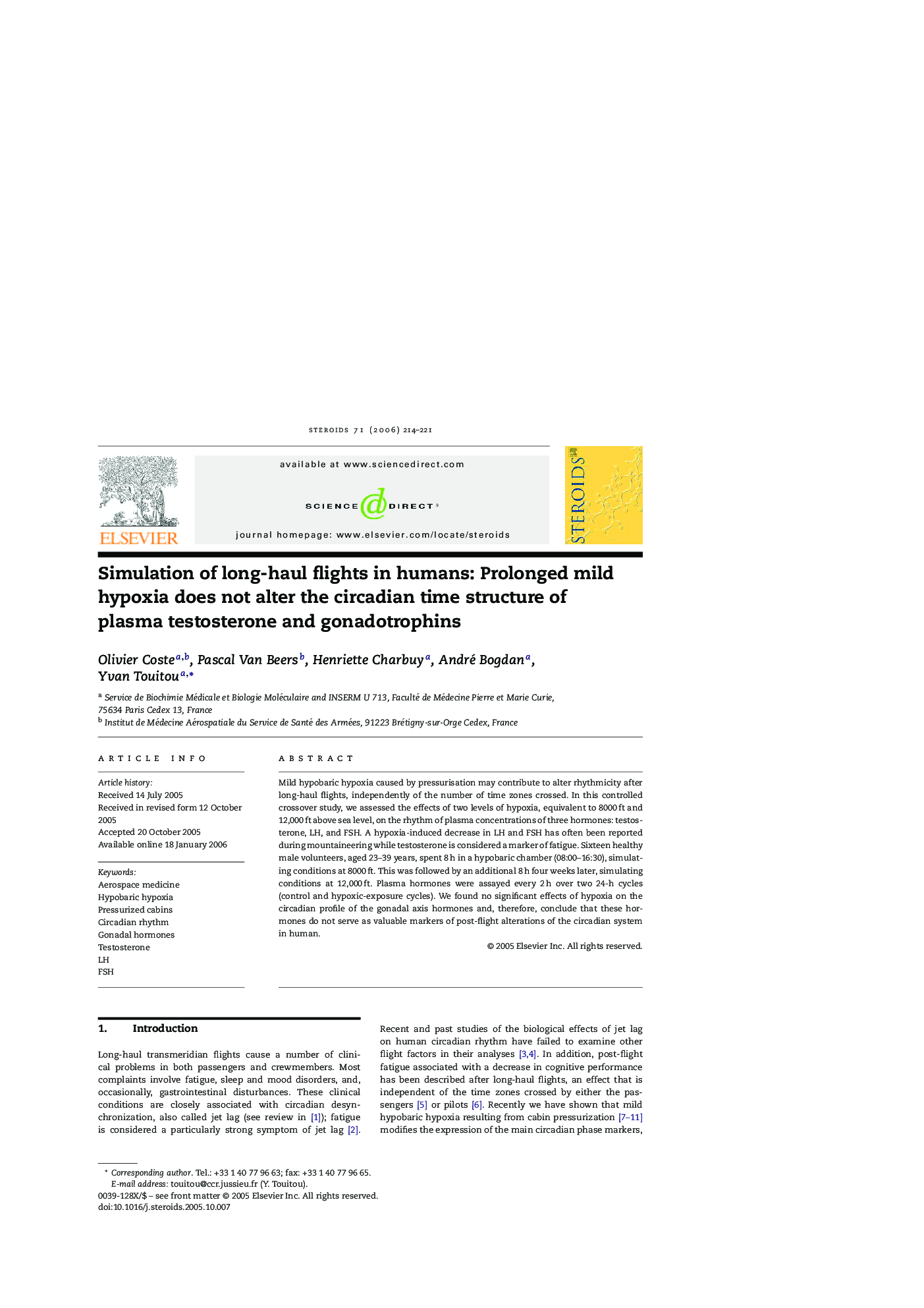| Article ID | Journal | Published Year | Pages | File Type |
|---|---|---|---|---|
| 2028884 | Steroids | 2006 | 8 Pages |
Abstract
Mild hypobaric hypoxia caused by pressurisation may contribute to alter rhythmicity after long-haul flights, independently of the number of time zones crossed. In this controlled crossover study, we assessed the effects of two levels of hypoxia, equivalent to 8000Â ft and 12,000Â ft above sea level, on the rhythm of plasma concentrations of three hormones: testosterone, LH, and FSH. A hypoxia-induced decrease in LH and FSH has often been reported during mountaineering while testosterone is considered a marker of fatigue. Sixteen healthy male volunteers, aged 23-39 years, spent 8Â h in a hypobaric chamber (08:00-16:30), simulating conditions at 8000Â ft. This was followed by an additional 8Â h four weeks later, simulating conditions at 12,000Â ft. Plasma hormones were assayed every 2Â h over two 24-h cycles (control and hypoxic-exposure cycles). We found no significant effects of hypoxia on the circadian profile of the gonadal axis hormones and, therefore, conclude that these hormones do not serve as valuable markers of post-flight alterations of the circadian system in human.
Related Topics
Life Sciences
Biochemistry, Genetics and Molecular Biology
Biochemistry
Authors
Olivier Coste, Pascal Van Beers, Henriette Charbuy, André Bogdan, Yvan Touitou,
